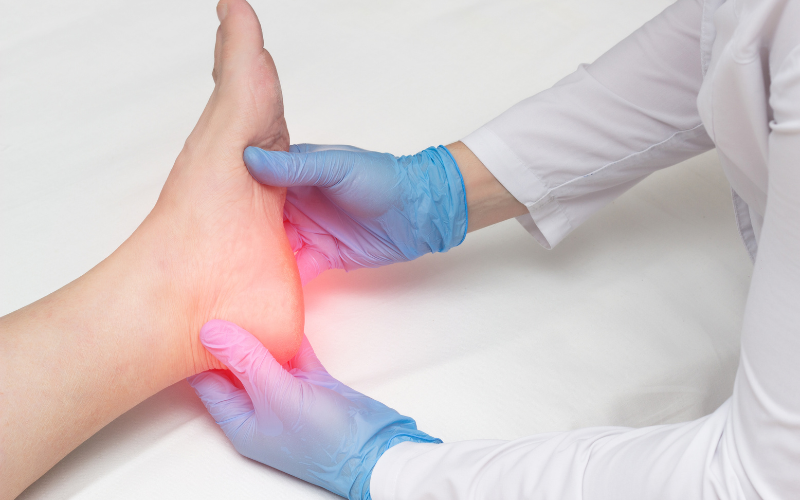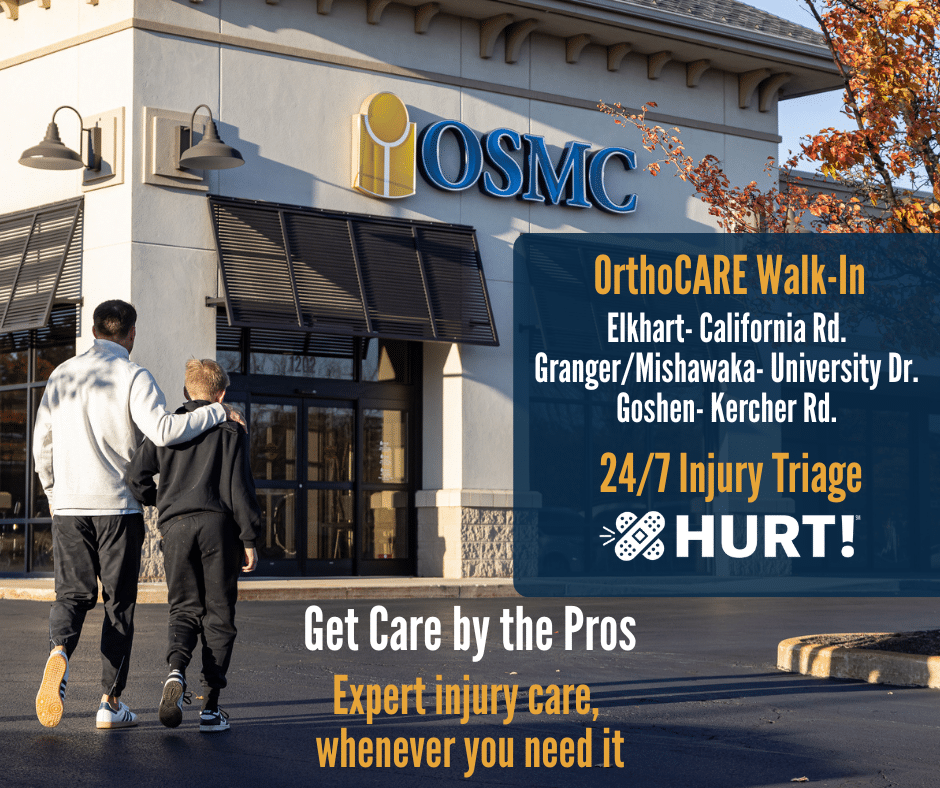Plantar Fasciitis Treatment in Northern Indiana
What is Plantar Fasciitis?
The plantar fascia in your foot is inflamed when you have plantar fasciitis. It's the most common reason for pain in the heel.
Plantar fasciitis happens when you abuse or stretch your plantar fascia too much. Your plantar fascia can grow if you hurt it in any way. Because of this swelling, it hurts to walk or use your foot. Most people get plantar fasciitis in just one foot at a time, but it is possible to have it in both feet at the same time.

Plantar Fasciitis Symptoms
Plantar fasciitis usually causes a sharp pain in the bottom of your foot near the heel. The pain is usually worse when you get out of bed and take your first few steps, but it can also happen when you stand for a long time or when you get up from sitting.
These are the most common signs of plantar fasciitis:
- Heel pain
- The arch of your foot hurts
- Stiffness
- Your heel is swelling
- The Achilles tendon is tight
Plantar Fasciitis Treatment
You can usually manage plantar fasciitis symptoms at home. However, nonsurgical treatments include but are not limited to:
- Over-the-counter medications - Medications like aspirin and ibuprofen relieve pain and inflammation
- Rest - If you can, stop playing sports or doing the activities that caused your plantar fasciitis for at least a week
- Ice - Twice a day, for 10 to 15 minutes, put ice on your foot. Wrap a frozen water bottle in a thin towel to protect your skin, then roll it along the bottom of your foot to roll out the swelling
- Wearing shoes that support your feet - Wear strong shoes with a lot of padding. Don't wear sandals, flip-flops, or flat shoes that don't have arch support built in. Don't walk around without shoes on
- Orthotics or shoe inserts - You can add extra support for your arches by putting inserts into your shoes. Your doctor will recommend either ready-made inserts that you can buy at a store or orthotics that are made to fit the exact shape of your foot
- Wearing a walking boot - A walking cast for a few weeks will keep your foot in place and take pressure off your plantar fascia. Your physician will tell you how long you need to wear the boot
- Stretching and massaging - Your doctor or a physical therapist will show you how to stretch and massage your foot and leg muscles
- Corticosteroids - Corticosteroids are anti-inflammatory medicines. A corticosteroid might be injected into your plantar fascia by your doctor to help temporarily relieve symptoms
Most of the time, the treatments above will be enough to ease your symptoms and treat your plantar fasciitis. Surgery is rarely needed, but there are choices for foot surgery.
Plantar Fasciitis Care in Michiana
Get the care you need and deserve for your feet and ankles at OSMC. If you have plantar fasciitis symptoms, give us a call at (574) 319-9386 or make an appointment right away. We hope to see you at one of our locations, where we serve people from Michiana, which is Northern Indiana, and the Southwest Michigan area.



